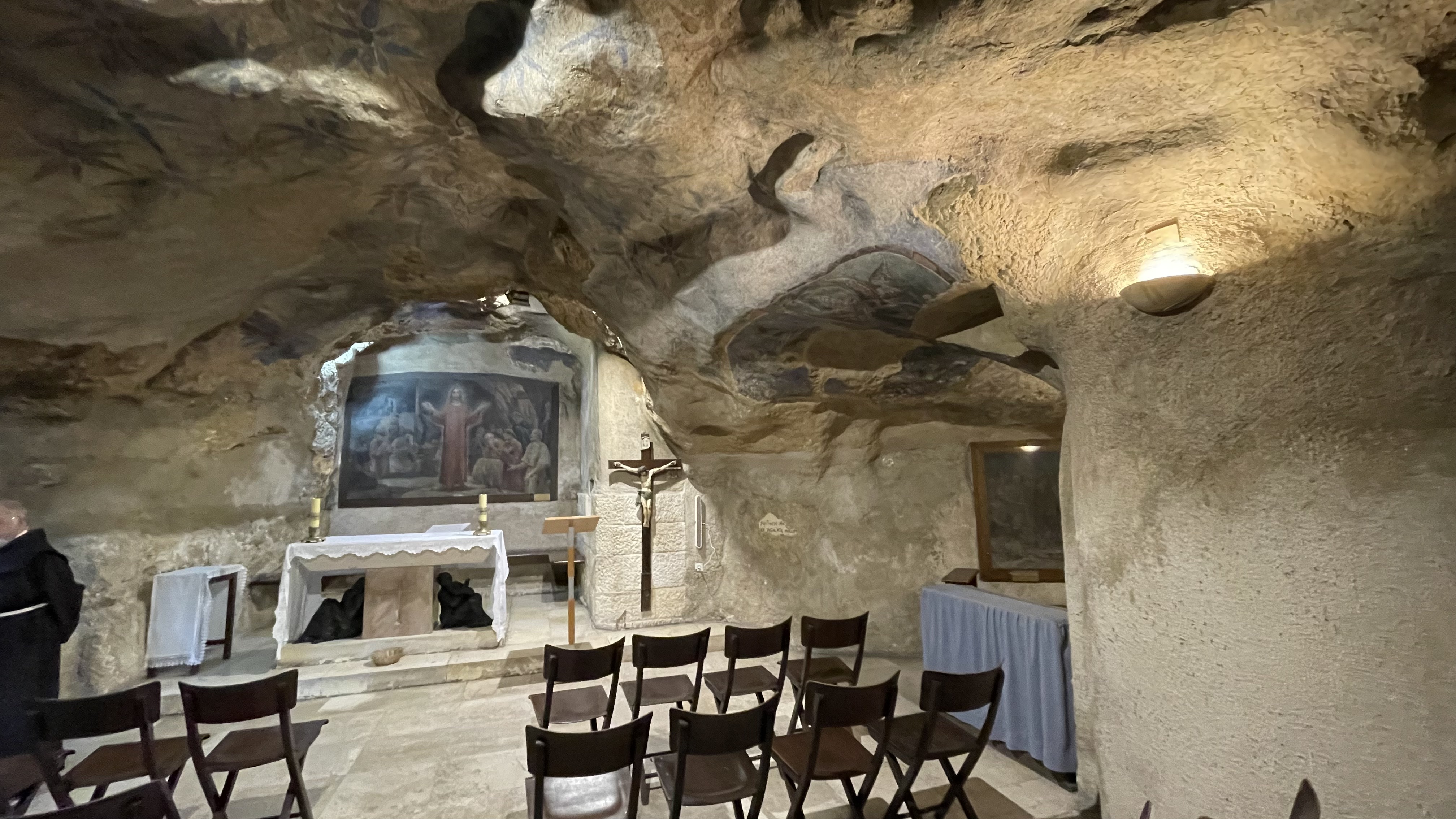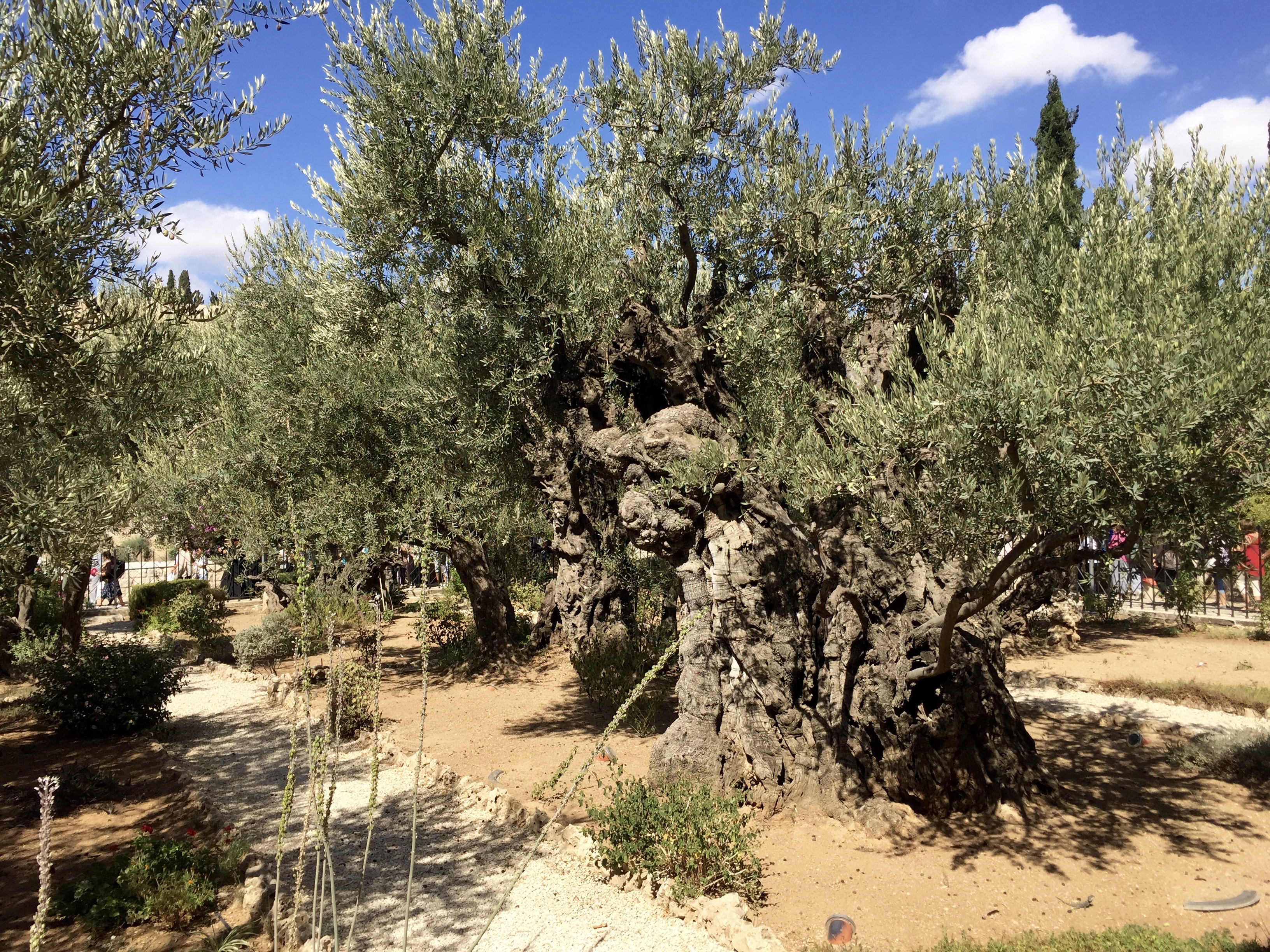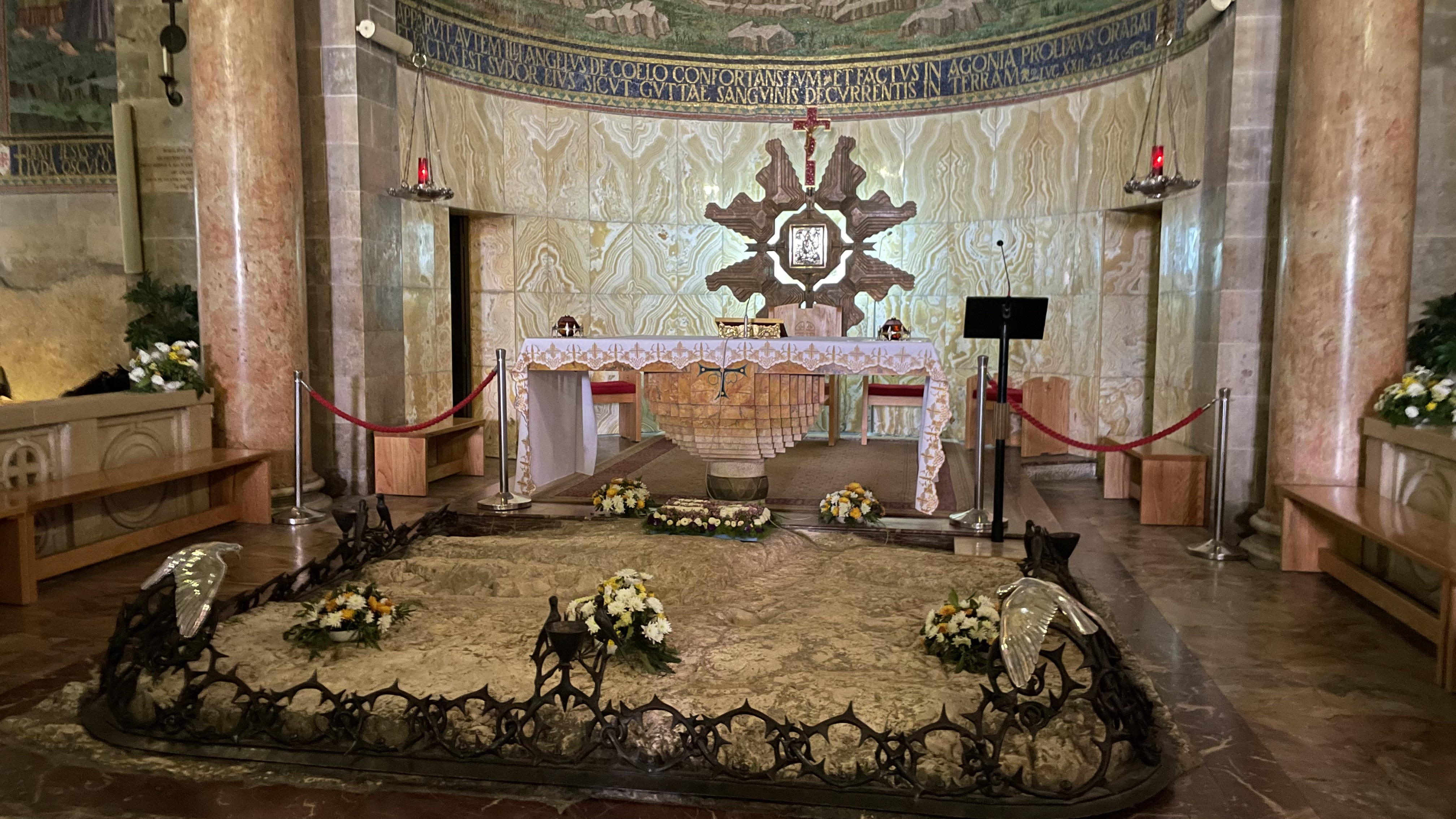Five Days Through the Holy Landનમૂનો

Facing Life’s Challenges - Gethsemane
At the bottom of the Mount of Olives is Gethsemane or, more precisely, the three locations for Gethsemane. This isn’t a case of different religious groups claiming their site. The Bible itself identifies three separate spots connected with Gethsemane.
The first location is a natural cave converted into a chapel. This is actually Gethsemane, which is a combination of two Hebrew words—gath, which refers to a press, and shemen, which is the word for olive oil. When Jesus went with His disciples to Gethsemane, He was going to the olive oil press. Olives are harvested at the very end of summer, just as the rainy season is about to begin. As a result, presses were often located in an enclosure, like a building or a cave. This natural cave on the Mount of Olives was the perfect location for such an olive oil press.

The press would have been active in the fall when olives were harvested, but for the rest of the year, it served as a shelter or gathering point for those visiting Jerusalem. Jesus and His disciples must have used it on numerous occasions. The night He was betrayed, Jesus “went, as was His habit, to the Mount of Olives” and, with His disciples, “arrived at the place” (Luke 22:39-40, nasb). The group, except Judas, came to the cave where the olive oil press was located. The disciples assumed this was where they would bed down for the evening. And Judas also knew this was where Jesus could be captured.
The second location in our journey through Gethsemane is the spot where Jesus went with Peter, James, and John. Luke provides a relative distance between the cave and the place where Jesus took the three disciples. Jesus “walked away, about a stone’s throw” (Luke 22:41). Of course, the exact distance depends on the person throwing the stone! But someone standing at the cave entrance and throwing a stone could expect it to land around the area known today as the Garden of Gethsemane.

It’s easy to picture Jesus standing among these trees with the three disciples who formed His inner circle. And what were His instructions to them? “Keep watch and pray, so that you will not give in to temptation. For the spirit is willing, but the body is weak” (Mark 14:38). And what was their response? They fell asleep! Three times! We can’t be too hard on these disciples. After all, it was late at night, it was dark, and they had just finished eating the Passover seder.
Next to this small grove of olive trees is a modern church with a colorful mosaic on the exterior. The church’s windows are made from alabaster. They allow some light to enter but block enough to make the interior look dark and foreboding. And at the front of the church is an area where the bedrock is exposed. This is said to mark the spot where Jesus went by Himself to pray. Matthew says Jesus went “a little farther” beyond the three disciples before falling “with his face to the ground” to pray (Matthew 26:39).

Somewhere in this general area—perhaps at the very spot we see at the front of the church—is the location where Jesus wrestled with the horror of His coming crucifixion. As He agonized in prayer, Luke records that His sweat became like drops of blood, an indication of the deep emotion Jesus was experiencing. “Father, if you are willing, please take this cup of suffering away from me. Yet I want your will to be done, not mine” (Luke 22:42).
Jesus knew that the moment He took on Himself the sin of the world, He would experience not just the pain of physical crucifixion. He would also experience all the separation, judgment, and punishment required for our sins. Is it any wonder that He was in agony as He prayed that night? This is a fitting place to pause and imagine the emotions Jesus was experiencing, and to realize that in the end, He was willing to submit to all that was to come because of His love for us.
Gethsemane is a reminder of how much God loves us and how much Jesus was willing to endure to pay the penalty for our sins. Paul pictured it this way in Romans 5:8: “But God showed his great love for us by sending Christ to die for us while we were still sinners.”
શાસ્ત્ર
About this Plan

Step away from the hustle—and hassle—of life and begin a five-day journey through the Holy Land. Experience the life-changing reality of exploring the Land and the Book.
More
સંબંધિત યોજનાઓ

Living for Christ at Home: An Encouragement for Teens

For the Least of These

The Bible for Young Explorers: Exodus

Daily Bible Reading— February 2025, God’s Strengthening Word: Sharing God's Love

Know Jesus, Make Him Known

Childrearing With the End in View: A 3-Day Parenting Plan

The Complete Devotional With Josh Norman

Pursuing Growth as Couples: A 3-Day Marriage Plan

Acts 9:32-43 | You Will Do Greater Things Than These
